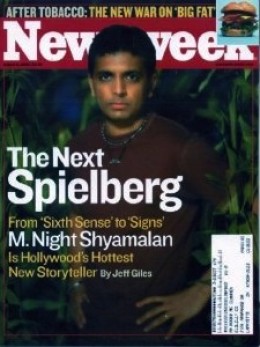G
Guestx
Guest
I still wish more people would keep listing other criteria. Then we could really get something going with a unique conversation.
Agreed. All right, let's see what we got so far from everything that's been said already:
- Quality of the director's best work - How good are his very best films?
- Quality of the director's work over time - Did he just have a few big hits and then a lot of mediocre films or has he been able to sustain a high level of quality over several years?
- Profitability - How well have his films performed at the box office?
- Popularity - How well known is the director? How beloved are they by the public? How large and devoted is their fan base? Could they be called an "icon?" Have they penetrated pop culture in any way?
- Longevity - How long have they stayed relevant? Did they have a brief prime and then fade into obscurity or have they had a career that has remained notable across decades?
- Awards - What notable awards have they won? What other industry recognition have they received?
- Range - How varied is their output? Do most of their films "feel" the same? What genres have they worked in?
- Are they story creators or only directors? - Do they usually write their own screenplays in addition to directing? Are those screenplays usually original ideas or adaptations of others' ideas?
- Impact on other filmmakers - What impact did they have on other filmmakers? How have they influenced the way that movies are made?
Last edited by a moderator:


